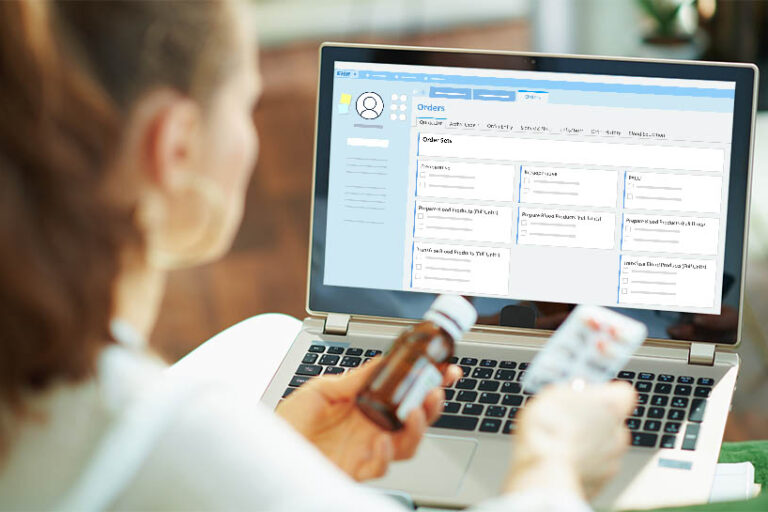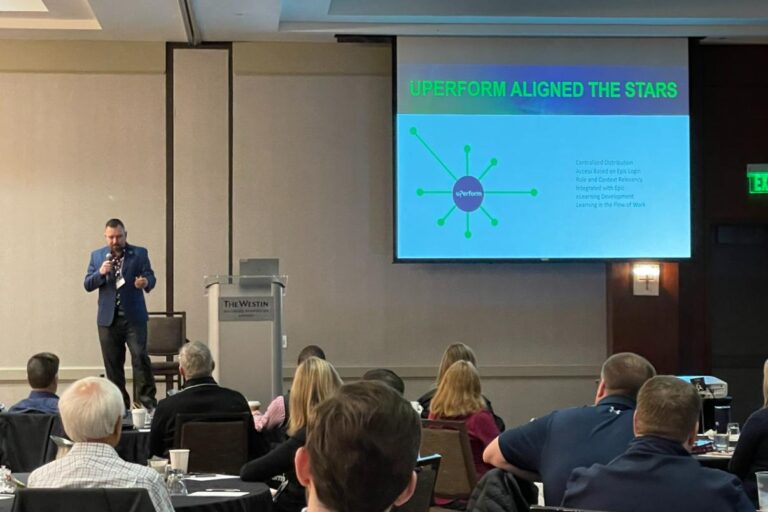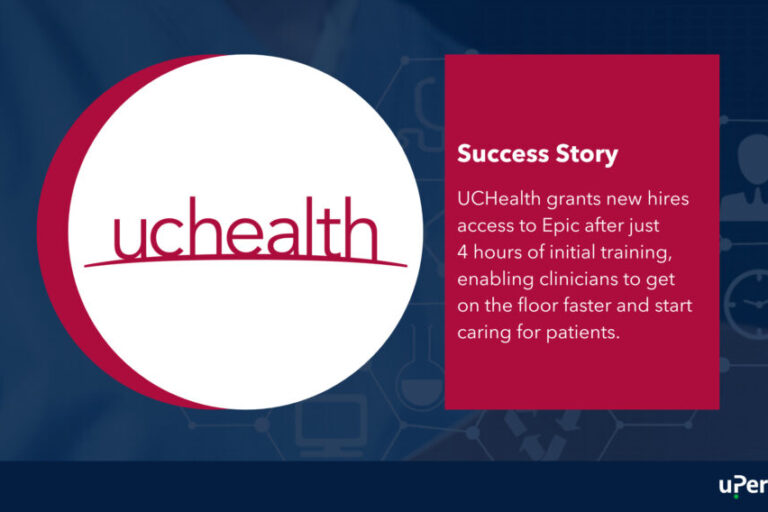As health systems struggle to retain nurses, new strategies for nurse training may provide some hope. We sat down with Dr. Annabaker Garber, former CNIO at HCA Healthcare and current Chief Clinical Officer at Mobile Heartbeat, to discuss how technology changes are impacting the nursing profession and how health systems can empower nurses to stay ahead of the change curve.
Tune into this Becker’s Healthcare podcast to hear Dr. Garber share nurse education strategies with uPerform’s Director of EHR Education, Liz Griffith.
Nursing has become more complicated, and so has nurse training
As a former CNIO, Dr. Garber brings a wealth of knowledge and experience to the conversation. She reflects on how the emergence of EHRs in healthcare has complicated the roles of nurses and their trainers. Other factors are adding to those challenges, as well. Dr. Garber notes how high turnover and an increased reliance on contract nurses is placing more demand on onboarding programs. Furthermore, health systems simply have more information they need to convey to staff. The challenges are forcing health systems to reconsider how they deliver onboarding and ongoing training.
The role of onboarding in a digital healthcare landscape
With more information to convey and more employees to onboard, Dr. Garber recommends that health systems take a new approach to onboarding.
“It used to be that onboarding was done once a quarter, or maybe less frequently. But now because of contract nursing, and always wanting to be hiring new nurses, onboarding programs tend to run more frequently.” – Dr. Annabaker Garber
A rise in merger and acquisition activity is also adding to the onboarding demands. One way to keep pace with the increased onboarding demands is to refocus the goal of onboarding. Rather than trying to train incoming nurses on everything they will need to perform their duties, Dr. Garber suggests that an onboarding program should orient new hires on what their role is and how to find the resources they need to excel. Health systems should focus on helping nurses:
- Get oriented and better understand their new work environment
- Know where to go to find help resources
- Understand leadership style and expectations
From there, organizations should support nurses on the job with what Dr. Garber refers to as “small frequent feedings.”
Small frequent feedings: Delivering small doses of ongoing training
Whereas it may have once been possible to deliver an effective and consistent onboarding experience in a classroom, this is simply no longer the case. Young nurses are used to having quick access to the information they need when they need it. Classroom training doesn’t provide this. Furthermore, due to the increased onboarding demands, classroom training just isn’t sustainable at scale.
Instead, Dr. Garber recommends an approach that focuses on enabling nurses to find the help they need while they work. She emphasizes the importance of continuous learning by noting that medical knowledge doubles every 42 days and that technology is always evolving. But getting clinicians off the floor and into a classroom has always been a challenge. She advocates for the use of microlearning content that is tailored to the “setting and the clinician’s needs.” It ensures clinicians always have access to the support they need.
But microlearning, she says, doesn’t only help clinicians. It also helps the organization:
- Deliver information efficiently
- Establish a central source of truth
- Control content, governance and timing of updates
In an increasingly complicated healthcare landscape, delivering nurse training in bit-sized microlearnings helps the organization scale training and create parity, particularly for larger health systems spread across large geographical areas.
Related Articles
Create and deliver microlearning content with uPerform
Looking for a scalable training solution that supports your nurses at their time of need? uPerform is a just-in-time training platform that enables organizations to create, manage and deliver role-based learning materials to clinicians directly in their workflow. Contact us today and discover why leading health systems across the U.S. and abroad are leveraging uPerform to deliver clinician training.










